Chia seeds are small but mighty superfoods that have garnered significant attention for their impressive nutritional benefits. Originating from the Salvia hispanica plant, these tiny black or white seeds are not only versatile but also packed with essential nutrients that can enhance overall health. This article delves into the myriad benefits of chia seeds, their nutritional profile, and practical ways to incorporate them into your diet.
Chia seeds are tiny seeds that have been consumed for centuries, dating back to ancient civilizations like the Aztecs and Mayans. They are recognized for their ability to absorb liquid, forming a gel-like consistency, which makes them unique among seeds.
Chia seeds are often referred to as a superfood due to their rich content of omega-3 fatty acids, dietary fiber, protein, and a variety of essential vitamins and minerals. These nutrients contribute to improved health and well-being, making chia seeds a valuable addition to any diet.
| Nutrient | Amount per 28g (1 oz) |
|---|---|
| Calories | 137 |
| Protein | 4g |
| Fiber | 11g |
| Omega-3 Fatty Acids | 5g |
| Calcium | 18% of the RDI |
| Magnesium | 24% of the RDI |
This impressive nutritional profile makes chia seeds beneficial for various aspects of health, including heart health, bone strength, and digestive health.
The high fiber content in chia seeds promotes healthy digestion by regulating bowel movements and preventing constipation. When soaked in water, chia seeds expand and form a gel, which can help to soften stool and facilitate easier passage through the digestive tract.
Chia seeds may be an effective ally in weight management. Their ability to absorb water and swell in the stomach can help you feel fuller for longer, potentially reducing overall calorie intake. This makes them a great addition to meals for those looking to manage their weight.
Rich in omega-3 fatty acids, chia seeds can help lower cholesterol levels and reduce inflammation, both of which are crucial for maintaining a healthy heart. Incorporating chia seeds into your diet can support cardiovascular health and may lower the risk of heart disease.
Chia seeds are an excellent source of calcium, phosphorus, and magnesium, all of which are essential for maintaining strong bones. Regular consumption of chia seeds can contribute to bone density and help prevent osteoporosis.
Due to their nutrient density and ability to provide sustained energy, chia seeds are popular among athletes. They can help improve endurance and hydration during workouts and competitions, making them a smart choice for anyone looking to enhance their athletic performance.
Chia seeds are incredibly versatile and can be easily added to various dishes. Here are some practical ways to include them in your meals:
- Add them to smoothies for a nutritional boost.
- Mix them into yogurt or oatmeal for added texture and fiber.
- Use them as an egg substitute in baking by mixing with water.
- Sprinkle them on salads or soups for extra crunch.
While chia seeds are generally safe for most people, consuming them in large quantities may lead to digestive discomfort. It’s essential to stay hydrated and introduce them gradually into your diet to avoid any adverse effects.
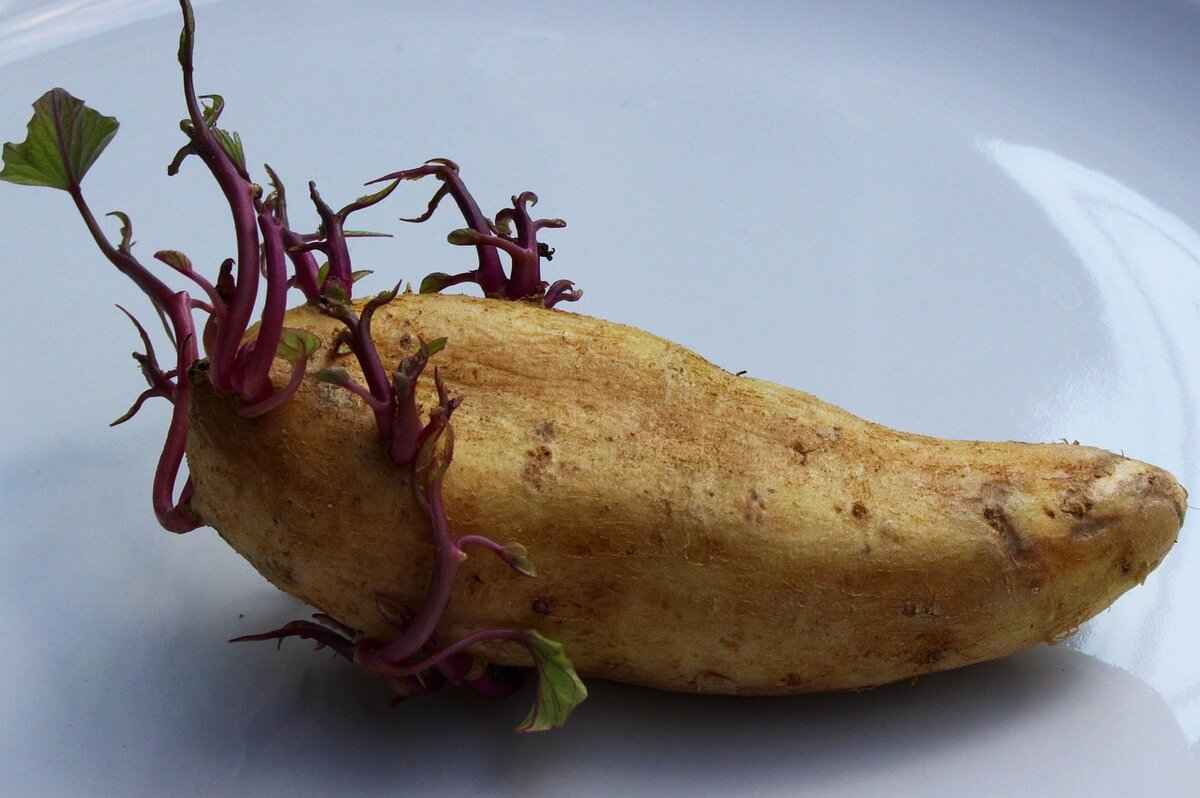
What Are Chia Seeds?
Chia seeds are small, nutrient-dense seeds derived from the Salvia hispanica plant, which is native to Central America. These tiny seeds, which can be black or white, have surged in popularity in recent years due to their remarkable health benefits and versatility in various culinary applications. Packed with essential nutrients, chia seeds are becoming a staple in many health-conscious diets.
Chia seeds are unique not just for their size but also for their impressive nutritional profile. They are loaded with omega-3 fatty acids, which are crucial for heart health, as well as a significant amount of fiber that aids in digestion. These seeds contain a balanced mix of protein, calcium, magnesium, and various antioxidants, making them a complete package for those looking to enhance their health.
The rising popularity of chia seeds can be attributed to their many health benefits. They are often labeled as a superfood due to their ability to provide a wide range of nutrients in a small serving. The high fiber content aids in digestion and promotes a feeling of fullness, making them a favorite among those looking to manage their weight. Furthermore, their rich omega-3 content supports cardiovascular health, making them a valuable addition to any diet.
Chia seeds are particularly beneficial for digestive health. Their high fiber content helps regulate bowel movements and prevent constipation. When mixed with liquid, chia seeds can absorb up to 12 times their weight, forming a gel-like substance that aids in digestion and promotes a healthy gut. This property makes them an excellent choice for those seeking to improve their digestive health.
Yes, chia seeds can be a helpful ally in weight management. Due to their ability to absorb water, they expand in the stomach, which can help you feel fuller for longer periods. This satiety factor can lead to reduced calorie intake, making chia seeds a valuable addition to a weight-loss strategy. Incorporating them into meals can help curb cravings and manage hunger effectively.
Chia seeds are rich in omega-3 fatty acids, which are essential for maintaining heart health. These healthy fats can help lower cholesterol levels, reduce inflammation, and improve overall cardiovascular function. Studies suggest that incorporating chia seeds into your diet may help lower the risk of heart disease, making them a smart choice for those looking to support their heart health.
These tiny seeds are also an excellent source of essential minerals like calcium, phosphorus, and magnesium, which are vital for maintaining strong bones. Regular consumption of chia seeds can contribute to bone density and strength, helping to prevent conditions such as osteoporosis. For those seeking plant-based sources of calcium, chia seeds are an excellent option.
Athletes often turn to chia seeds for their energy-boosting properties. The nutrient density of these seeds provides a sustained energy release, making them ideal for endurance activities. Additionally, their hydrating properties can help maintain fluid balance during intense workouts. Many athletes find that incorporating chia seeds into their diet improves their performance and recovery.
Incorporating chia seeds into your diet is simple and versatile. They can be added to smoothies, yogurt, salads, and baked goods. For a nutritious breakfast, consider making chia pudding by soaking the seeds in milk or a milk alternative overnight. This not only enhances their nutritional value but also creates a delicious and satisfying meal.
While chia seeds are generally safe for most people, consuming them in large quantities may lead to digestive discomfort. It is essential to stay hydrated when eating chia seeds, as their high fiber content can absorb significant amounts of water. To avoid any adverse effects, introduce them gradually into your diet.
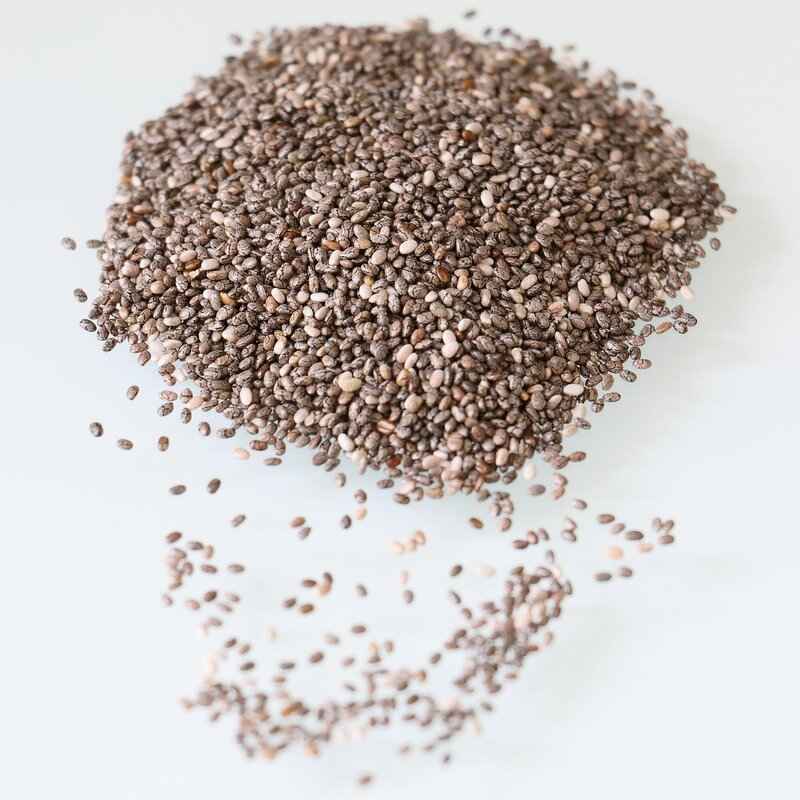
Why Are Chia Seeds Considered a Superfood?
Chia seeds are often hailed as a superfood due to their remarkable nutritional benefits and versatility in various diets. These tiny seeds, derived from the Salvia hispanica plant, have captured the attention of health enthusiasts and nutritionists alike. In this article, we will delve deeper into the reasons why chia seeds deserve their superfood status and explore the multitude of health benefits they offer.
One of the primary reasons chia seeds are considered a superfood is their high content of omega-3 fatty acids. Omega-3s are essential fats that play a crucial role in maintaining heart health, reducing inflammation, and supporting brain function. With more omega-3s than salmon by weight, chia seeds are an excellent plant-based source for those following vegetarian or vegan diets.
In addition to omega-3s, chia seeds are loaded with dietary fiber. A single ounce of chia seeds provides about 11 grams of fiber, which is essential for digestive health. Fiber aids in regulating bowel movements and can help prevent constipation. Furthermore, the soluble fiber in chia seeds forms a gel-like substance when mixed with water, which can promote a feeling of fullness and assist in weight management.
Chia seeds are also a fantastic source of protein. They contain all nine essential amino acids, making them a complete protein source. This is particularly beneficial for individuals looking to increase their protein intake without consuming animal products. Incorporating chia seeds into meals can help support muscle repair and growth, making them a favorite among athletes and fitness enthusiasts.
Beyond these macronutrients, chia seeds are rich in essential micronutrients. They provide significant amounts of calcium, magnesium, and phosphorus, which are vital for maintaining strong bones and overall skeletal health. In fact, a single serving of chia seeds can deliver more calcium than a glass of milk, making them an excellent choice for individuals who are lactose intolerant or prefer plant-based sources of calcium.
Moreover, chia seeds are packed with antioxidants, which help combat oxidative stress and inflammation in the body. Antioxidants play a crucial role in protecting cells from damage caused by free radicals, potentially reducing the risk of chronic diseases such as heart disease and cancer.
Another compelling reason to consider chia seeds a superfood is their versatility. They can be easily incorporated into a variety of dishes, from smoothies and oatmeal to salads and baked goods. Their mild flavor allows them to blend seamlessly into both sweet and savory recipes, making it easy to reap their health benefits without altering the taste of your meals.
As we explore the benefits of chia seeds, it is essential to note that they should be consumed in moderation. While they are generally safe for most people, excessive intake may lead to digestive discomfort. It’s advisable to start with small amounts and gradually increase your intake while ensuring adequate hydration.
In summary, chia seeds are considered a superfood for a multitude of reasons, including their rich content of omega-3 fatty acids, high fiber and protein levels, essential micronutrients, and antioxidant properties. Their ability to support heart health, aid digestion, and promote overall well-being makes them a valuable addition to any diet. By incorporating chia seeds into your meals, you can harness their health benefits and enjoy a nutritious boost to your daily routine.
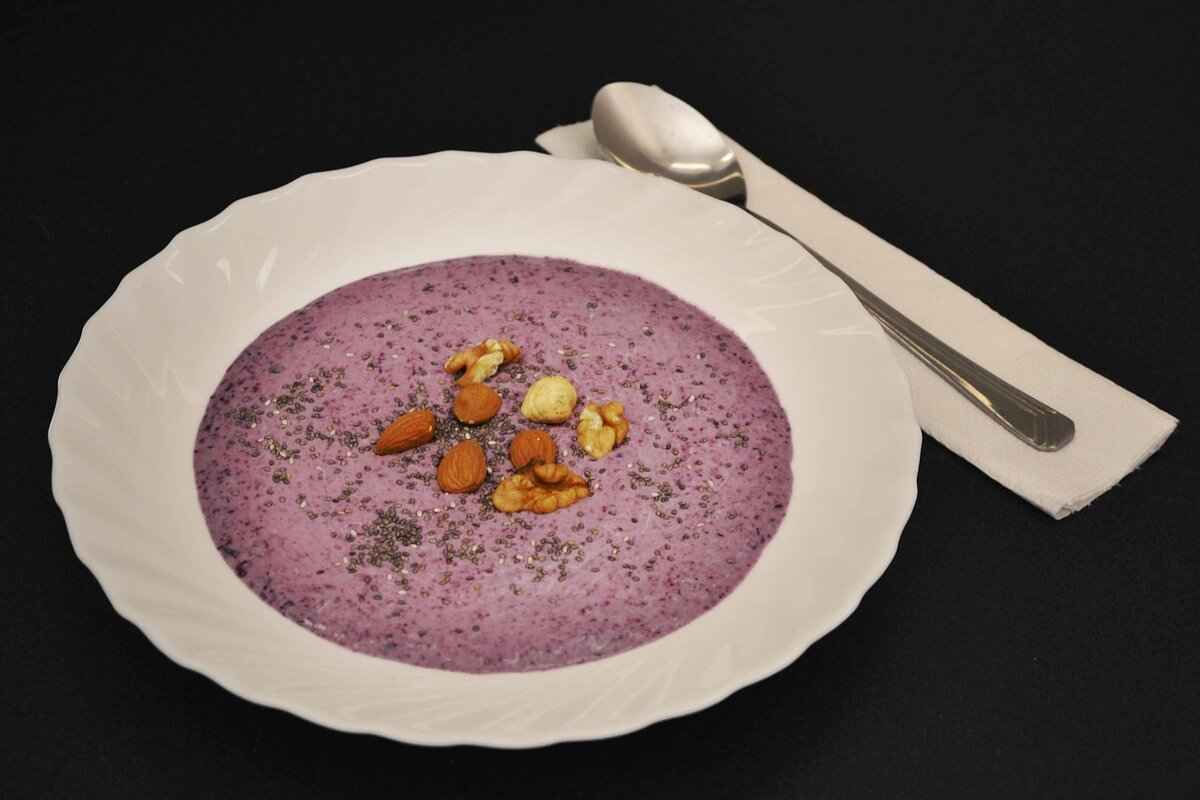
What Nutrients Are Found in Chia Seeds?
Chia seeds are often celebrated for their remarkable nutritional profile. These tiny seeds are derived from the Salvia hispanica plant and are loaded with essential nutrients that contribute to overall health. In this section, we will explore the various nutrients found in chia seeds and their respective health benefits, providing you with a comprehensive understanding of why these seeds are considered a superfood.
Chia seeds are a powerhouse of nutrients, including:
- Fiber: Chia seeds are exceptionally high in fiber, with about 10 grams per ounce. This high fiber content aids in digestion, promotes a feeling of fullness, and helps regulate blood sugar levels.
- Protein: They contain a good amount of protein, approximately 4 grams per ounce. This makes them an excellent plant-based protein source, particularly for vegetarians and vegans.
- Omega-3 Fatty Acids: Chia seeds are one of the richest plant sources of omega-3 fatty acids, particularly alpha-linolenic acid (ALA). These healthy fats are crucial for heart health and may help reduce inflammation.
- Calcium: With about 18% of the recommended daily intake in just one ounce, chia seeds are a great source of calcium, which is essential for maintaining strong bones and teeth.
- Magnesium: They provide around 30% of the recommended daily value of magnesium, a mineral that plays a vital role in over 300 biochemical reactions in the body, including muscle and nerve function.
- Antioxidants: Chia seeds are rich in antioxidants, which help combat oxidative stress and protect the body from free radical damage. This can contribute to overall health and longevity.
- Phosphorus: This mineral is crucial for bone health and energy production, and chia seeds offer a significant amount, supporting overall metabolic processes.
Chia seeds also contain trace minerals such as zinc and iron, which are important for immune function and oxygen transport in the blood, respectively. Their unique composition makes them beneficial for various aspects of health, including:
- Weight Management: The combination of protein and fiber in chia seeds can help control appetite and reduce cravings, making them an effective addition to a weight management plan.
- Heart Health: The omega-3 fatty acids in chia seeds support cardiovascular health by reducing cholesterol levels and lowering blood pressure.
- Bone Health: The calcium, magnesium, and phosphorus content in chia seeds contribute significantly to bone density and strength, helping to prevent osteoporosis.
- Digestive Health: The high fiber content promotes regular bowel movements and supports a healthy gut microbiome.
Incorporating chia seeds into your diet can be simple and enjoyable. They can be added to smoothies, sprinkled on salads, or mixed into yogurt. When soaked in water or other liquids, they form a gel-like consistency, making them a great thickening agent for various recipes.
In summary, chia seeds are not just a trendy health food; they are a nutrient-dense superfood that offers a wide range of benefits. Their impressive nutritional profile makes them an excellent choice for anyone looking to enhance their diet and improve their overall health.

How Do Chia Seeds Aid in Digestion?
Chia seeds, often hailed as a superfood, are not only nutritious but also play a significant role in promoting digestive health. Their unique properties make them an excellent addition to any diet, especially for those seeking to improve their digestive function.
The high fiber content in chia seeds is one of the primary reasons they are beneficial for digestion. Each serving of chia seeds contains approximately 10 grams of fiber, which is essential for maintaining a healthy digestive system. This fiber is predominantly soluble, which means it absorbs water and forms a gel-like substance in the stomach. This gel not only helps to regulate bowel movements but also promotes a feeling of fullness, reducing the likelihood of overeating.
- Regulation of Bowel Movements: The soluble fiber in chia seeds can help to soften stool, making it easier to pass. This is particularly beneficial for individuals who suffer from constipation or irregular bowel movements.
- Gut Health: Chia seeds act as a prebiotic, providing nourishment for beneficial gut bacteria. A healthy gut microbiome is crucial for optimal digestion and overall health.
- Hydration: When chia seeds are soaked in water, they can absorb up to 12 times their weight. This property helps to keep the digestive tract hydrated, which is essential for smooth digestion.
Incorporating chia seeds into your diet can be simple and enjoyable. Here are a few practical tips:
- Add to Smoothies: Blend chia seeds into your favorite smoothie for an extra fiber boost.
- Mix with Yogurt: Stir chia seeds into yogurt or oatmeal for added texture and nutrition.
- Use in Baking: Substitute a portion of flour with ground chia seeds in baking recipes to enhance fiber content.
It’s essential to consume chia seeds with adequate water to prevent any potential digestive discomfort. As they expand in the stomach, insufficient hydration could lead to bloating or discomfort. Therefore, start with a small amount and gradually increase your intake as your body adjusts.
In summary, the high fiber content in chia seeds significantly contributes to improved digestive health. By promoting regular bowel movements, supporting gut health, and aiding in hydration, chia seeds are a valuable addition to a digestive-friendly diet. Their versatility makes them easy to incorporate into various meals, allowing individuals to enjoy their numerous health benefits while enhancing their overall dietary habits.

Can Chia Seeds Help with Weight Management?
Chia seeds, often hailed as a superfood, have gained significant attention for their potential benefits in weight management. These tiny seeds, derived from the Salvia hispanica plant, possess unique properties that can aid in achieving and maintaining a healthy weight. One of the primary reasons for their popularity in weight loss diets is their remarkable ability to absorb water, expanding significantly in the stomach. This characteristic not only contributes to a feeling of fullness but also plays a crucial role in reducing overall calorie intake.
When chia seeds are consumed, they can absorb up to 10-12 times their weight in water. This means that when they are ingested, they swell and form a gel-like substance in the stomach. As a result, they create a sense of satiation that can last for several hours. This prolonged feeling of fullness can help individuals resist the urge to snack between meals, ultimately leading to a decrease in calorie consumption throughout the day.
Moreover, the high fiber content in chia seeds is another contributing factor to their effectiveness in weight management. Each serving of chia seeds contains approximately 10 grams of fiber, which is essential for promoting healthy digestion and regular bowel movements. Fiber-rich foods are known to slow down the digestion process, allowing for a gradual release of energy and preventing sudden spikes in hunger.
Incorporating chia seeds into your diet can be simple and versatile. They can be added to smoothies, yogurt, oatmeal, or even baked goods. For those looking to enhance their meals, chia seeds can also be sprinkled on salads or used as a thickening agent in soups and sauces. This ease of incorporation makes it convenient for individuals to include chia seeds in their daily routine.
Additionally, chia seeds are low in calories yet high in essential nutrients, making them an ideal food for anyone looking to manage their weight. They are packed with omega-3 fatty acids, protein, and various vitamins and minerals that support overall health. By replacing higher-calorie ingredients with chia seeds in recipes, individuals can enjoy delicious meals while still working towards their weight management goals.
However, it is important to consume chia seeds in moderation. While they offer numerous benefits, excessive consumption can lead to digestive discomfort due to their high fiber content. It is recommended to start with small amounts and gradually increase intake while ensuring adequate hydration, as chia seeds absorb a significant amount of water.
In summary, chia seeds can be a valuable addition to a weight management plan. Their unique ability to absorb water, combined with their high fiber content and nutrient density, makes them an excellent choice for those looking to feel fuller for longer and reduce overall calorie intake. By incorporating chia seeds into a balanced diet, individuals can enjoy their health benefits while working towards their weight goals.
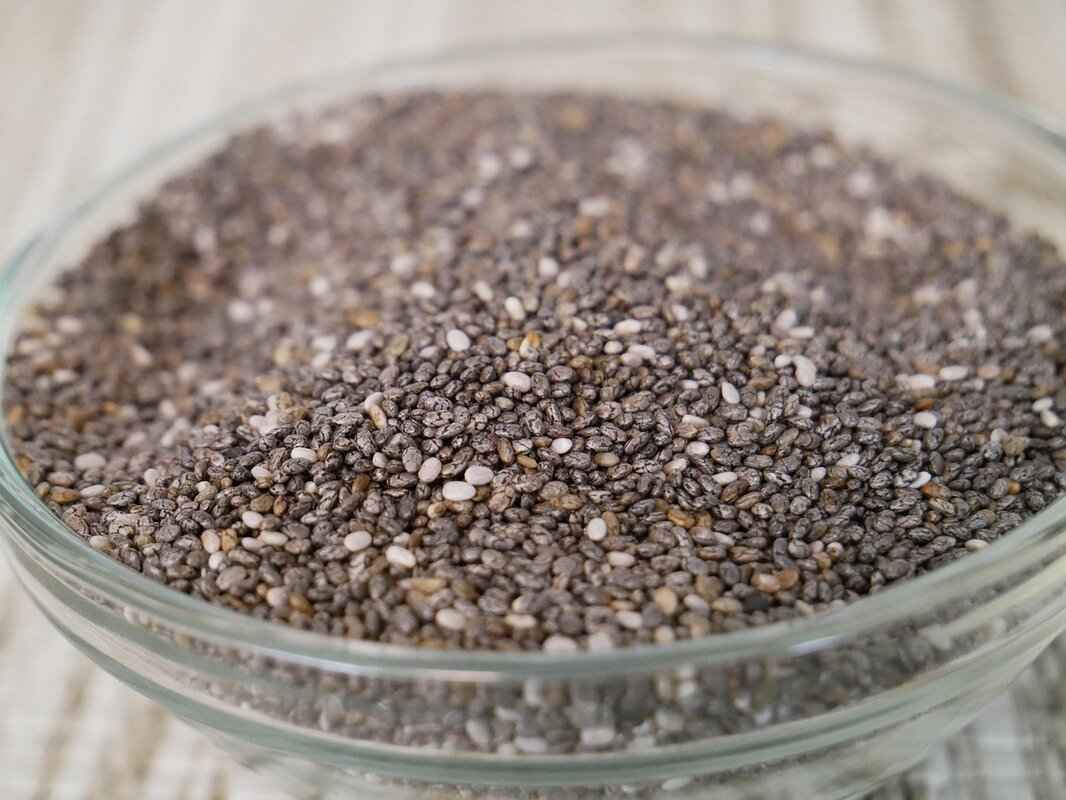
What Are the Heart Health Benefits of Chia Seeds?
Chia seeds, often referred to as a superfood, are not just a trendy addition to smoothies and salads; they offer significant benefits for heart health. Rich in omega-3 fatty acids, these tiny seeds can play a crucial role in maintaining cardiovascular wellness. In this section, we will delve deeper into the heart health benefits of chia seeds and how they can be seamlessly integrated into a balanced diet.
How Do Omega-3 Fatty Acids Benefit Heart Health?
Omega-3 fatty acids are essential fats that our bodies cannot produce on their own. They are known to help lower cholesterol levels, reduce triglycerides, and lower blood pressure, all of which are vital for a healthy heart. Chia seeds are an excellent plant-based source of these fatty acids, specifically alpha-linolenic acid (ALA), which has been linked to improved heart health.
Reducing Inflammation with Chia Seeds
Chronic inflammation is a significant risk factor for heart disease. The antioxidants found in chia seeds, such as quercetin and chlorogenic acid, help combat oxidative stress and inflammation in the body. By incorporating chia seeds into your diet, you may reduce inflammation levels, potentially lowering the risk of heart-related issues.
How Do Chia Seeds Help Regulate Blood Pressure?
Research suggests that a diet rich in omega-3 fatty acids can help regulate blood pressure. Chia seeds, with their high omega-3 content, can contribute to lower blood pressure levels. This is particularly beneficial for individuals with hypertension, as maintaining healthy blood pressure is crucial for overall heart health.
The Role of Fiber in Heart Health
Chia seeds are also an excellent source of dietary fiber. A high-fiber diet is associated with lower cholesterol levels and improved heart health. The soluble fiber in chia seeds can help reduce the absorption of cholesterol into the bloodstream, further supporting cardiovascular health. Additionally, fiber aids in weight management, which is another vital aspect of heart health.
How to Incorporate Chia Seeds into Your Heart-Healthy Diet
- Add chia seeds to your morning smoothies for a nutrient boost.
- Sprinkle them on top of yogurt or oatmeal for added texture and health benefits.
- Use chia seeds as a thickening agent in soups and sauces.
- Mix chia seeds into baked goods like muffins or bread for a healthy twist.
In conclusion, the heart health benefits of chia seeds are substantial. Their omega-3 fatty acids, fiber content, and antioxidant properties make them an excellent choice for anyone looking to improve their cardiovascular health. By incorporating chia seeds into your daily meals, you can take a proactive step towards a healthier heart.
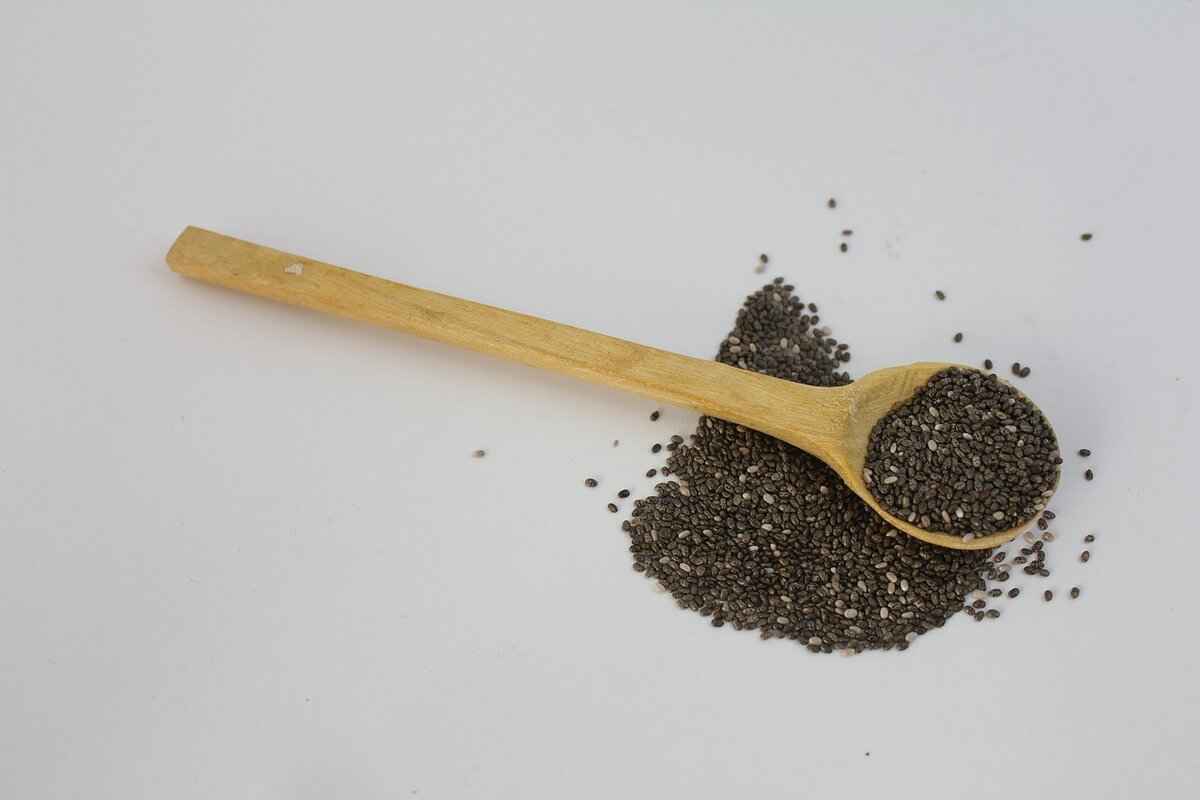
How Do Chia Seeds Support Bone Health?
Chia seeds, often hailed as a superfood, offer a myriad of health benefits, particularly when it comes to supporting bone health. These tiny seeds are loaded with essential nutrients that play a crucial role in maintaining strong and healthy bones. In this section, we will delve into the specific nutrients found in chia seeds and how they contribute to bone health.
One of the standout features of chia seeds is their impressive mineral content. They are an excellent source of calcium, which is vital for bone structure and strength. In fact, just one ounce of chia seeds provides approximately 18% of the recommended daily intake of calcium. This mineral is essential for the development and maintenance of bone density, making it a key player in preventing conditions like osteoporosis.
In addition to calcium, chia seeds are rich in phosphorus, another mineral that works in conjunction with calcium to build and maintain strong bones. Phosphorus is crucial for the formation of bone tissue and helps to regulate calcium levels in the body. With about 27% of the daily recommended intake of phosphorus in just one serving, chia seeds can significantly contribute to your overall bone health.
Moreover, chia seeds are a great source of magnesium, a mineral that is often overlooked but is equally important for bone health. Magnesium plays a role in converting vitamin D into its active form, which aids in calcium absorption. It also helps in the structural development of bones. A single ounce of chia seeds provides around 24% of the daily recommended intake of magnesium, making them a valuable addition to a bone-friendly diet.
Furthermore, the omega-3 fatty acids found in chia seeds also contribute to bone health by reducing inflammation. Chronic inflammation can lead to bone loss, so incorporating anti-inflammatory foods like chia seeds into your diet can be beneficial. The seeds contain a type of omega-3 fatty acid called alpha-linolenic acid (ALA), which has been shown to have protective effects on bone density.
To maximize the benefits of chia seeds for bone health, consider incorporating them into your daily meals. They can be easily added to smoothies, oatmeal, or yogurt, and can even be used in baking. A simple way to enjoy chia seeds is by making a chia seed pudding. Just mix chia seeds with milk or a dairy-free alternative, let them soak overnight, and enjoy a nutritious breakfast or snack packed with bone-strengthening nutrients.
In summary, chia seeds are a nutrient-dense food that supports bone health through their high content of calcium, phosphorus, magnesium, and omega-3 fatty acids. By including these tiny seeds in your diet, you can take proactive steps towards maintaining strong bones and preventing osteoporosis. Their versatility and ease of incorporation into various dishes make them an ideal choice for anyone looking to enhance their bone health.

Can Chia Seeds Enhance Athletic Performance?
Chia seeds have emerged as a popular choice among athletes and fitness enthusiasts, primarily due to their remarkable nutritional profile and energy-boosting properties. These tiny seeds, derived from the Salvia hispanica plant, are packed with essential nutrients that can significantly enhance athletic performance.
One of the key reasons athletes incorporate chia seeds into their diets is their ability to provide sustained energy. Chia seeds are rich in carbohydrates, which are crucial for fueling the body during intense workouts. Unlike simple carbohydrates that can lead to quick spikes and crashes in energy levels, the complex carbohydrates found in chia seeds release energy gradually, helping athletes maintain their stamina throughout their training sessions and competitions.
Moreover, chia seeds are a fantastic source of omega-3 fatty acids, which play a vital role in reducing inflammation and promoting recovery after strenuous exercise. This is particularly beneficial for athletes who often experience muscle soreness and fatigue. By incorporating chia seeds into their diets, athletes can potentially enhance their recovery times and improve their overall performance.
Hydration is another critical aspect of athletic performance, and chia seeds excel in this area as well. When soaked in liquid, chia seeds can absorb up to 12 times their weight in water, forming a gel-like substance. This property not only helps athletes stay hydrated but also aids in maintaining electrolyte balance during prolonged physical activity. Proper hydration is essential for optimal performance, as even mild dehydration can impair strength and endurance.
In addition to their energy and hydration benefits, chia seeds are also a great source of protein. Protein is essential for muscle repair and growth, making it a crucial nutrient for athletes. With approximately 4 grams of protein per ounce, chia seeds can contribute to meeting the protein needs of individuals engaged in rigorous training regimens.
Furthermore, chia seeds are packed with antioxidants that help combat oxidative stress, which can occur during intense exercise. By reducing oxidative damage, athletes may experience improved recovery and enhanced performance over time.
Incorporating chia seeds into an athlete’s diet can be simple and versatile. They can be added to smoothies, yogurt, oatmeal, and even baked goods, making them easy to integrate into daily meals. For those looking to maximize their benefits, consuming chia seeds before workouts can provide a significant energy boost, while including them in post-workout meals can aid in recovery.
In conclusion, the benefits of chia seeds for athletic performance are numerous. From providing sustained energy and enhancing hydration to promoting recovery and muscle growth, these tiny seeds can play a significant role in an athlete’s nutritional regimen. As more individuals recognize the advantages of chia seeds, they are likely to remain a staple in the diets of athletes and fitness enthusiasts alike.
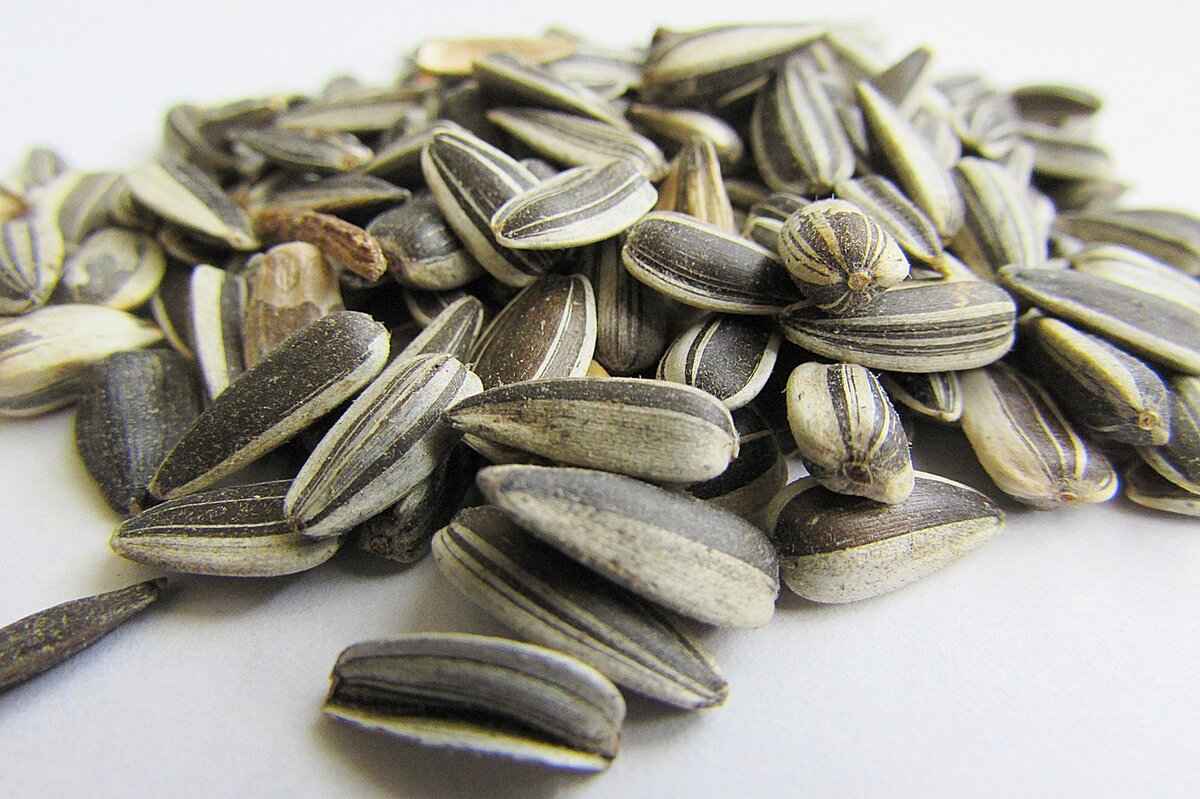
How to Incorporate Chia Seeds into Your Diet?
Chia seeds are not just a trendy superfood; they are incredibly versatile and can be seamlessly integrated into a variety of meals. Their mild flavor and unique texture make them an excellent addition to both sweet and savory dishes. Here are some creative ways to incorporate chia seeds into your diet for maximum health benefits.
One of the easiest ways to enjoy chia seeds is by adding them to smoothies. Simply blend a tablespoon of chia seeds into your favorite smoothie recipe. They will not only enhance the nutritional value but also provide a thicker texture. Consider combining them with:
- Fruits: Bananas, berries, or mangoes
- Vegetables: Spinach or kale
- Liquid: Almond milk, coconut water, or yogurt
Chia seed pudding is a popular breakfast or snack option. To make it, mix 3 tablespoons of chia seeds with 1 cup of your choice of milk (dairy or plant-based) and let it sit for a few hours or overnight in the refrigerator. You can enhance the flavor by adding:
- Sweeteners: Honey, maple syrup, or agave
- Flavorings: Vanilla extract or cocoa powder
- Toppings: Fresh fruits, nuts, or granola
Chia seeds can also be sprinkled on salads for an added crunch. They provide a subtle nutty flavor that complements various salad ingredients. Try mixing them into:
- Green salads: With leafy greens, tomatoes, and cucumbers
- Grain salads: Quinoa or brown rice salads
- Dressings: Incorporate chia seeds into homemade dressings for an extra nutrient boost
Incorporating chia seeds into baked goods can enhance their nutritional profile. You can substitute some of the flour in recipes with ground chia seeds or use them as a binding agent. Consider adding chia seeds to:
- Breads: Whole grain or gluten-free varieties
- Muffins: Banana or blueberry muffins
- Pancakes: Mix them into your pancake batter for added texture
For a refreshing drink, consider making a chia seed beverage. Simply mix chia seeds with water, juice, or herbal tea. Let the mixture sit for about 10-15 minutes to allow the seeds to expand and form a gel-like consistency. This drink can be a great source of hydration and energy.
Don’t be afraid to experiment with chia seeds in your cooking. You can add them to:
- Soups: Stir in chia seeds to thicken soups
- Oatmeal: Mix them into your morning oats
- Energy bars: Create homemade energy bars with nuts, fruits, and chia seeds
By incorporating chia seeds into your meals, you can enjoy their numerous health benefits while adding variety and texture to your diet. With their adaptability, you’ll find that these tiny seeds can enhance your meals in countless ways.
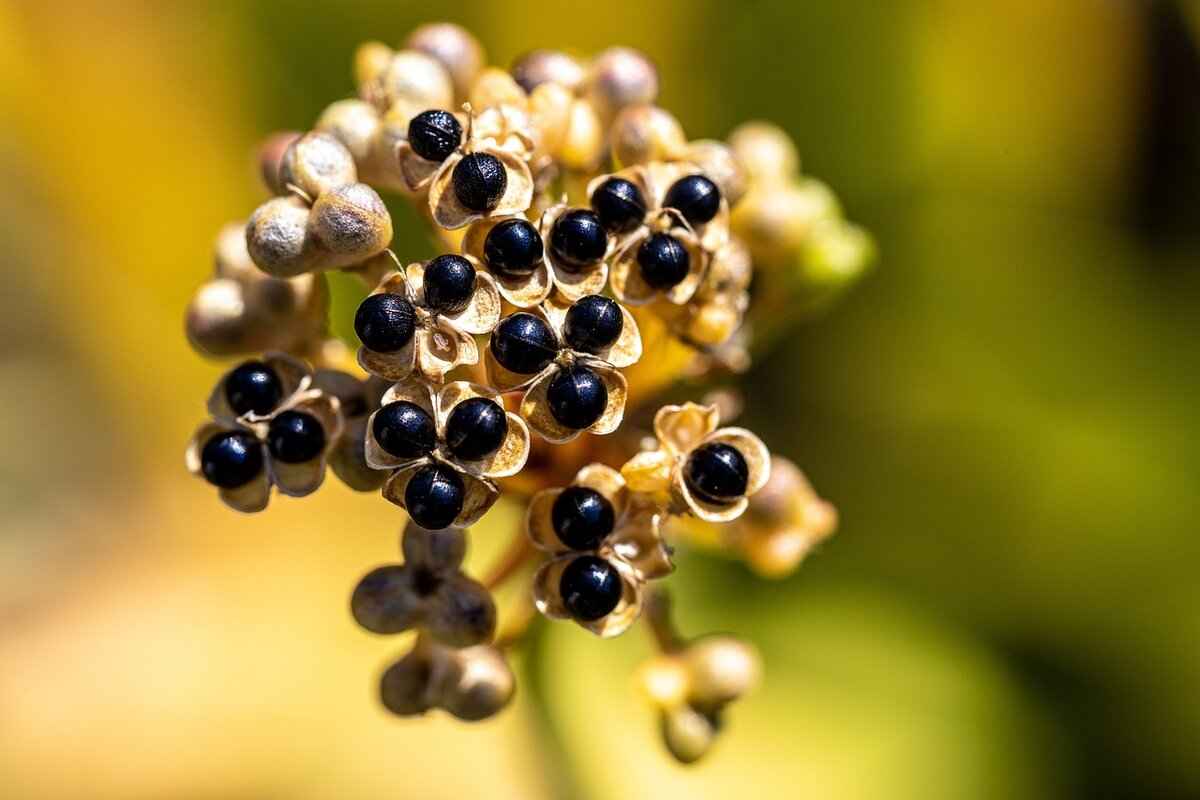
Are There Any Potential Side Effects of Chia Seeds?
Chia seeds have become increasingly popular due to their nutritional benefits, but like any food, they may have side effects for some individuals. Understanding these potential issues is crucial for anyone looking to incorporate chia seeds into their diet.
While chia seeds are generally regarded as safe, consuming them in excessive amounts can lead to digestive discomfort. This discomfort often manifests as bloating, gas, or even diarrhea. These side effects are primarily due to the high fiber content found in chia seeds, which can be overwhelming for those not accustomed to a fiber-rich diet.
To minimize these effects, it is advisable to introduce chia seeds gradually into your meals. Start with small servings—perhaps a teaspoon or two—and slowly increase the quantity as your body adjusts to the increased fiber intake. This gradual introduction allows your digestive system to adapt, reducing the likelihood of discomfort.
Another important factor to consider is hydration. Chia seeds can absorb up to 10-12 times their weight in water, forming a gel-like substance when soaked. This property can be beneficial for hydration but may also lead to digestive issues if not enough fluids are consumed. Therefore, it’s essential to drink plenty of water when adding chia seeds to your diet. Proper hydration not only aids digestion but also helps prevent potential blockages that can occur if the seeds expand in the digestive tract without sufficient liquid.
For those with certain medical conditions, such as a history of gastrointestinal issues or those who are on blood-thinning medications, it’s wise to consult with a healthcare professional before incorporating chia seeds into your diet. This precaution ensures that you avoid any adverse reactions that could arise from their consumption.
Additionally, some individuals may have allergies or sensitivities to chia seeds. If you experience any allergic reactions, such as itching, swelling, or difficulty breathing after consuming them, it is crucial to seek medical attention immediately and discontinue use.
In summary, while chia seeds are a nutritious addition to many diets, it’s important to be mindful of their potential side effects. By introducing them gradually, staying hydrated, and consulting with a healthcare provider if necessary, you can enjoy the numerous health benefits that chia seeds offer without experiencing discomfort. Remember, moderation is key to reaping the rewards of this superfood while minimizing any adverse effects.
Frequently Asked Questions
- What are the main health benefits of chia seeds?
Chia seeds are packed with nutrients that support overall health. They are rich in omega-3 fatty acids, fiber, and protein, which can help improve digestion, promote heart health, and aid in weight management.
- How can I add chia seeds to my diet?
You can easily incorporate chia seeds into your meals! Try adding them to smoothies, yogurt, oatmeal, or even salads. They can also be used in baking or as a thickening agent in recipes.
- Are there any side effects of consuming chia seeds?
While chia seeds are generally safe, some people may experience digestive discomfort if they consume too many at once. It’s best to start with a small amount and drink plenty of water to help with digestion.
- Can chia seeds help with weight loss?
Yes! Chia seeds can aid in weight loss by absorbing water and expanding in your stomach, which helps you feel full longer. This can lead to reduced calorie intake throughout the day.
- Are chia seeds suitable for everyone?
Most people can enjoy chia seeds safely, but if you have specific health concerns or dietary restrictions, it’s always a good idea to consult with a healthcare professional before adding them to your diet.














